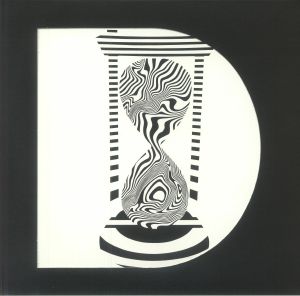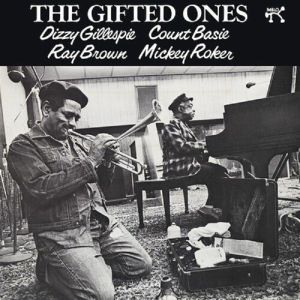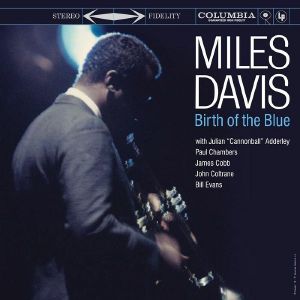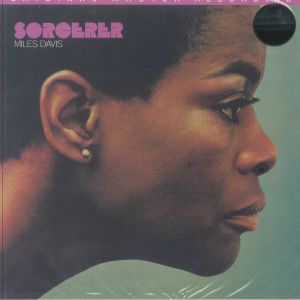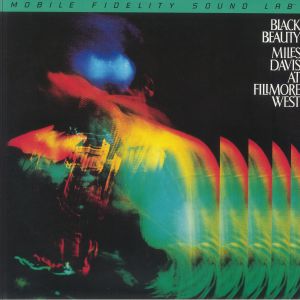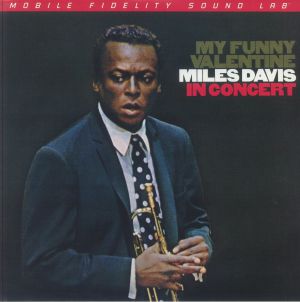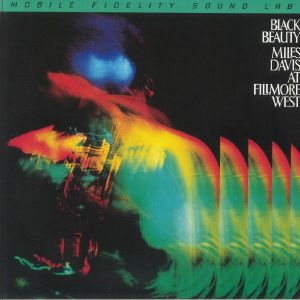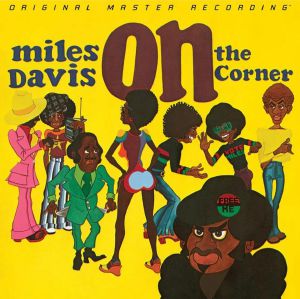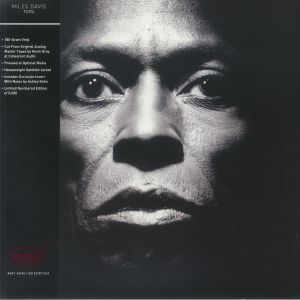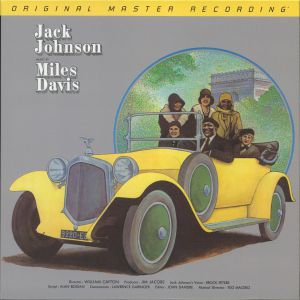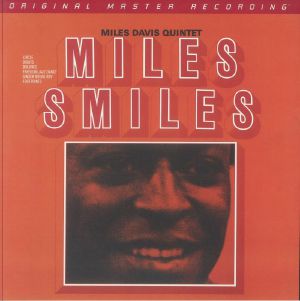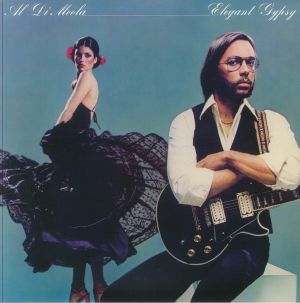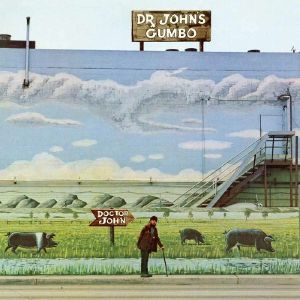Back catalogue: Funk Soul & Jazz
Juno's full catalogue of Funk Soul & Jazz
Singles
DRB ADB II (10" + MP3 download code in debossed die-cut sleeve)
Cat: DRBADB 002. Rel: 18 Sep 24
in stock $53.52
Albums
The Gifted Ones (reissue) (limited gatefold 180 gram vinyl LP)
Cat: APJ 161. Rel: 14 Oct 24
in stock $55.77
Trio (Deluxe Edition) (180 gram vinyl LP box set + booklet + art print + MP3 download code)
Cat: ACTLP 80001. Rel: 28 Nov 24
in stock $75.77
Birth Of The Blue (gatefold 180 gram audiophile vinyl LP)
Cat: 198028 166218. Rel: 29 Jan 25
Review: Iconic recordings from 1959 blessed with s a fresh, vibrant energy. The opener, with its elegant trumpet lines and meticulous rhythm section, feels like a masterclass in restraintibuilding from delicate intricacies to full-blown, fluid improvisation. As the album progresses, each track shows Davis's intuitive connection with his bandmates, effortlessly weaving complexity into accessible melodies. The slow-burning 'Blue in Green' stands out, with its haunting beauty and rich, emotive depth. Throughout, the album is a showcase of Davis's transformative approach to jazz, fusing cool jazz elements with the raw emotional power that defined his later work. A definitive, timeless piece.
… Read more in stock $54.94
Sorcerer (limited numbered 180 gram audiophile vinyl LP)
Cat: 194399 826515. Rel: 22 Nov 24
in stock $80.29
Black Beauty: Miles Davis At Fillmore West (limited numbered gatefold 180 gram audiophile vinyl 2xLP + booklet)
Cat: MFSL 2568. Rel: 04 Apr 25
Review: April 10, 1970. Miles Davis, fresh from his Jack Johnson sessions and with a new face in the band, soprano saxophonist Steve Grossman, take the stage at San Francisco's Fillmore West and set about sparking a revolution in jazz by fusing it with rock and funk elements. Captured on Black Beauty: Miles Davis at Fillmore West, this performance is one for the agesifull of explosive improvisation, raw energy and a palpable sense of transformation. The album, finally reissued on vinyl after years of being locked away in Japan, is a time capsule of a moment in jazz history where tradition was discarded and a new frontier was being built. With his usual crewiGrossman, Chick Corea on keys, Dave Holland on bass, Jack DeJohnette on drums, and Airto Moreira on percussioniDavis steered the ship into turbulent, unpredictable waters. It's all about the groove, the shifts in rhythm, and the untamed trumpet blasts that echo through the room like firecrackers. Tracks like 'Miles Runs the Voodoo Down' - from the milestone Bitches Brew album, which had come out a mere month before - and 'It's About That Time' tear apart the old jazz playbook, plunging deep into rock territory while still holding on to the open-ended freedom of improvisation. This is the raw, unfiltered jazz that would come to define the electric period of Davis' caree - a live-wire snapshot of a jazz legend finding new possibilities in real-time.
… Read more in stock $85.36
My Funny Valentine: In Concert (reissue) (limited numbered 180 gram audiophile SuperVinyl LP)
Cat: MFSV 1520. Rel: 03 Mar 25
Review: As it is the month of love - or another overbearingly capitalist instruction to treat people for the sake of it, depending on your viewpoint - why no indulge in some loved up jazz from Miles Davis? My Funny Valentine captured delicate ballads and was met with immediate critical successes. It is an album that demonstrated profound emotion with minimal fuss and represents a high point in Miles Davis' early 1960s career, capturing the excitement and sound of a road-honed group at its peak. Herbie Hancock's piano intros, George Coleman's melodic tenor, Ron Carter's steady bass, and Tony Williams' unexpected drumming contributed to an unforgettable collective sound.
… Read more in stock $74.35
Black Beauty: Miles Davis At Fillmore West (B-STOCK) (limited numbered gatefold 180 gram audiophile vinyl 2xLP + booklet)
Cat: MFSL 2568 (B-STOCK). Rel: 01 Jan 90
B-STOCK: Slight surface mark on the record sleeve
Review: ***B-STOCK: Slight surface mark on the record sleeve***
April 10, 1970. Miles Davis, fresh from his Jack Johnson sessions and with a new face in the band, soprano saxophonist Steve Grossman, take the stage at San Francisco's Fillmore West and set about sparking a revolution in jazz by fusing it with rock and funk elements. Captured on Black Beauty: Miles Davis at Fillmore West, this performance is one for the agesifull of explosive improvisation, raw energy and a palpable sense of transformation. The album, finally reissued on vinyl after years of being locked away in Japan, is a time capsule of a moment in jazz history where tradition was discarded and a new frontier was being built. With his usual crewiGrossman, Chick Corea on keys, Dave Holland on bass, Jack DeJohnette on drums, and Airto Moreira on percussioniDavis steered the ship into turbulent, unpredictable waters. It's all about the groove, the shifts in rhythm, and the untamed trumpet blasts that echo through the room like firecrackers. Tracks like 'Miles Runs the Voodoo Down' - from the milestone Bitches Brew album, which had come out a mere month before - and 'It's About That Time' tear apart the old jazz playbook, plunging deep into rock territory while still holding on to the open-ended freedom of improvisation. This is the raw, unfiltered jazz that would come to define the electric period of Davis' caree - a live-wire snapshot of a jazz legend finding new possibilities in real-time.
… Read moreApril 10, 1970. Miles Davis, fresh from his Jack Johnson sessions and with a new face in the band, soprano saxophonist Steve Grossman, take the stage at San Francisco's Fillmore West and set about sparking a revolution in jazz by fusing it with rock and funk elements. Captured on Black Beauty: Miles Davis at Fillmore West, this performance is one for the agesifull of explosive improvisation, raw energy and a palpable sense of transformation. The album, finally reissued on vinyl after years of being locked away in Japan, is a time capsule of a moment in jazz history where tradition was discarded and a new frontier was being built. With his usual crewiGrossman, Chick Corea on keys, Dave Holland on bass, Jack DeJohnette on drums, and Airto Moreira on percussioniDavis steered the ship into turbulent, unpredictable waters. It's all about the groove, the shifts in rhythm, and the untamed trumpet blasts that echo through the room like firecrackers. Tracks like 'Miles Runs the Voodoo Down' - from the milestone Bitches Brew album, which had come out a mere month before - and 'It's About That Time' tear apart the old jazz playbook, plunging deep into rock territory while still holding on to the open-ended freedom of improvisation. This is the raw, unfiltered jazz that would come to define the electric period of Davis' caree - a live-wire snapshot of a jazz legend finding new possibilities in real-time.
in stock $78.87
On The Corner (remastered) (limited numbered gatefold 180 gram audiophile SuperVinyl LP)
Cat: 194399 826416. Rel: 10 Sep 24
Review: Miles Davis' On the Corner was released in 1972 and was initially dismissed by jazz purists for its unconventional style but over time its visionary approach has been rightfully given the respect it deserves. Davis' boldest and most controversial album in a discography full of them, On the Corner shifted jazz's focus to groove and bass-heavy funk and reshaped the genre and pioneering techniques that anticipated remix culture and electronica by over a decade. This special pressing, sourced from the original master tapes and pressed on MoFi SuperVinyl, enhances the record's deep basslines and intricate studio techniques to offer a vivid and immersive listening experience that underscores its groundbreaking influence.
… Read more in stock $74.35
Tutu (reissue) (limited gatefold 180 gram vinyl LP + insert with obi-strip (indie exclusive))
Cat: 081227 817367. Rel: 10 Jul 24
Review: Rhino's new premium vinyl series promises the pinnacle of sound and packaging for classic albums. Mastered by Kevin Gray and pressed by Optimal on 180-gram vinyl, these limited-edition releases feature high-quality covers and "tip-on" jackets. The series aims to deliver consistent sonic excellence, setting a new standard for reissues. Miles Davis' Tutu (1986): Often dismissed as 'pop-fusion', Tutu defied expectations and remains relevant. Produced by Marcus Miller, it features a tapestry of electronics, including bass guitar, bass clarinet, electric violin, percussion, and synths. The album reflects the 80s with its bright tonalities and a crisp sound akin to the Fairlight era. Davis' brooding brass blends with Miller's harmonically rich backdrops, reminiscent of black popular music of the time. The result is a work of engrossingly fraught atmospheres, proving Davis' enduring relevance and ability to captivate without sounding dated.
… Read morePlayed by: Juno Recommends Jazz
in stock $52.68
Jack Johnson (reissue) (limited numbered gatefold 180 gram SuperVinyl LP)
Cat: MFSV 1516. Rel: 10 Jun 24
Review: Miles Davis' A Tribute to Jack Johnson stands as a pinnacle of jazz-rock fusion, blending slashing rock and aggressive funk with an astounding lineup. Mastered from the original tapes, Mobile Fidelity's reissue captures the music's aggression and immediacy like never before. Guitarist John McLaughlin delivers a nasty edge and vicious streak, bridging the gap between rock and jazz with his slashing style. Davis' trumpet solos sizzle with exuberance, surrounded by urgent backbeats and knifing riffs. An amazing degree of instrumental separation and imaging allow you to focus on singular musicians and the roles they play. The album, often overshadowed by Davis' other works, serves as a personal manifesto, saluting boxing legend Jack Johnson. Producer Ted Macero seamlessly assembles sessions, resulting in a lean, guitar-heavy sound that hits with brutal force and graceful elegance. A Tribute to Jack Johnson remains a monster album, demanding to be experienced in all its ferocious glory.
… Read more in stock $74.35
Miles Smiles (reissue) (B-STOCK) (gatefold 180 gram SuperVinyl LP)
Cat: MFSV 1515 (B-STOCK). Rel: 01 Jan 90
B-STOCK: Sleeve damaged but otherwise in excellent condition
in stock $72.96
Pepito Y Paquito (Deluxe Edition) (limited 2xLP + CD + booklet + photographic prints with obi-strip in die-cut hardback book sleeve)
Cat: BGRT 640283. Rel: 27 Jun 24
in stock $55.77
Pepito Y Paquito (gatefold 2xLP)
Cat: 4099964 036701. Rel: 30 May 24
Review: This forthcoming album, features 21 previously unreleased tracks by Paco de Lucia and his brother Pepe. Dating back to 1959 and 1960, these recordings provide a rare glimpse into the early musical endeavors of the duo, aged 11 and 13 respectively at the time. The tapes, restored using AI technology from a vintage Grundig TK46 tape recorder, capture the essence of the brothers' talent and passion for flamenco. Pepe de Lucia expressed astonishment at revisiting the recordings, reflecting on the joyous memories they evoke. Pepito y Paquito promises to be a poignant homage to the enduring legacy of Paco de Lucia and his brother, marking a significant milestone in the history of flamenco music.
… Read more in stock $55.21
Elegant Gypsy (reissue) (180 gram vinyl LP + insert)
Cat: 196588 625817. Rel: 07 Jan 25
in stock $71.84
Blue Bossa In The Bronx: Live From The Blue Morocco (Record Store Day RSD 2025) (limited hand-numbered gatefold 180 gram vinyl 2xLP)
Cat: HLP 9072. Rel: 16 May 25
in stock $94.08
Dr John's Gumbo (reissue) (limited gatefold 180 gram audiophile vinyl 2xLP)
Cat: 753088 755675. Rel: 19 May 25
Review: Originally released in 1972, Dr John's fifth album is an upfront tribute to his inimitable hometown of New Orleans. A collection of covers, tracks chosen from the almost-endless archives of classic blues, jazz and creole tracks that have come out of the Big Easy over the preceding century or so. It also marked something of a character and stylistic sidestep for the legendary Louisiana player. Building a cult following and rather unique reputation for his eccentric stage performances and often pretty left-of-the-middle songwriting and arrangements, by comparison Dr John's Gumbo plays it much straighter, making this an authentic and respectful tribute to rhythm and blues as it has long been played. That's no criticism - the same masterful musicianship remains very much intact, while the personality still shines through. Simply put, the songs have been done again and again, but this album could only be Dr John.
… Read more in stock $63.09
Gris Gris (reissue) (limited numbered gatefold 180 gram audiophile vinyl 2xLP + booklet + insert)
Cat: 753088 754678. Rel: 21 Oct 24
Review: The 180-gram vinyl reissue of Dr. John's Gris-Gris by Music Direct is a meticulously remastered version of the classic 1968 album, using pure analogue components from the master tapes to the cutting head. This reissue highlights the album's intricate soundscapes, balancing catchy choruses with Afro-Caribbean percussion, swampy grooves, and haunting vocals. Dr. John's unique blend of voodoo mystique and psychedelic atmospheres transports listeners deep into the heart of New Orleans' spiritual underworld. Tracks like 'Gris-Gris Gumbo Ya Ya' and 'I Walk On Gilded Splinters' evoke a timeless, hypnotic quality, making the album as revolutionary now as when it debuted.
… Read more in stock $56.37
My Life: Preisner's Music (gatefold 2xLP)
Cat: PPLP 006. Rel: 20 May 25
in stock $65.08

 USD
USD





